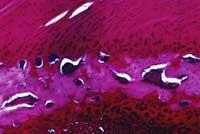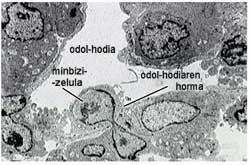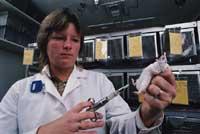A conventional anticoagulant is effective against cancer in the mouse
2001/03/14 Galarraga Aiestaran, Ana - Elhuyar Zientzia

Although in the years 60-70, heparin paralyzed metastasis, that is, the extension of cancer to other parts of the body, by testing it with man did not yield good results. Researchers at the University of California felt that there was a mistake in these tests because they were given heparin by mouth, so they decided to do other tests.
By moving cancer cells from the original tumor to another part of the body through the blood, blood platelets attach to cancer cell receptors, forming a shield that protects them from antibodies.
The team led by researcher Lubor Borsig rehearsed with the mice and, despite a single dose of heparin, after several weeks saw that cancer cells were significantly reduced. They also had much less metastasis.
Borsg explains that unlike oral anticoagulants, intravenous heparin prevents platelets from sticking to cancer cell receptors. This allows the body's defenses to detect and fight cancer cells.
Now we have to do more tests and see the results in humans, but it can be said that one more step has been taken in the fight against cancer.

Gai honi buruzko eduki gehiago
Elhuyarrek garatutako teknologia






